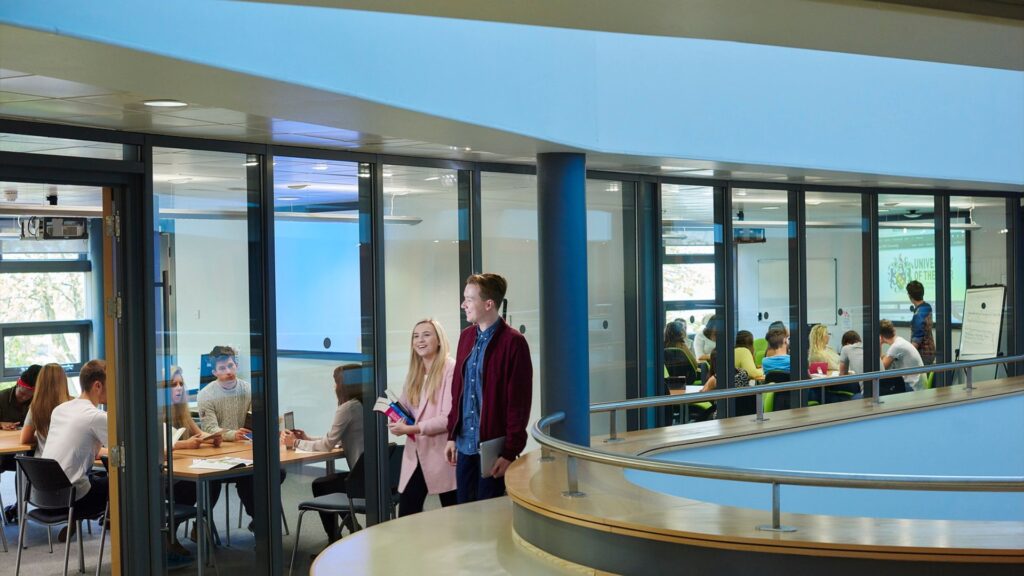Accountancy BSc (Hons)
UCAS code: N410
Take your first step on the pathway to becoming a qualified accountant, gaining exemptions from the main accountancy professional bodies. Our accountancy degree offers the opportunity to flex your financial knowledge and help businesses get the best from their balance sheet.
Overview
| Course length: | 3 years full-time |
|---|---|
| Start dates: | September 2024 |
| Location: | Edge Hill University |
| Example offers: | BBC-BBB (A Level) or DMM (BTEC) View full entry criteria |
| Subject(s): | Accounting and Finance |
| Faculty: | Arts and Sciences |
| Department: | Business School |

If applying for September 2025 entry, this course is BSc (Hons) Accounting.
Every successful business depends on strong accountancy skills. This accountancy degree covers the principles of current accountancy practice and deepens your commercial awareness. You’ll gain practical, real-world experience that develops your knowledge of businesses operations and boosts your employability.
Our accountancy degree is accredited by the main accountancy professional bodies, including the Association of Chartered Certified Accountants (ACCA), Chartered Institute of Management Accountants (CIMA), Institute of Chartered Accountants in England and Wales (ICAEW) and the Chartered Institute of Public Finance and Accountancy (CIPFA).
Immerse yourself in the theories and concepts of accounting and enhance your IT skills. You’ll learn about essential accounting software and obtain your International Computer Driving Licence (ICDL) and Sage certificates.
When you complete your degree, you’ll have combined theory and practical exercises to understand finance in today’s business world. Guest speakers from the accounting professional bodies will also provide guidance for employment.
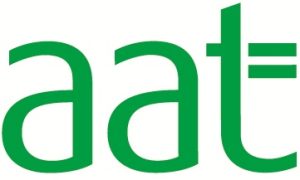
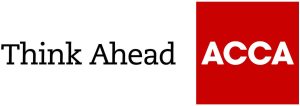
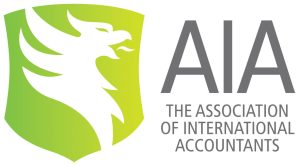
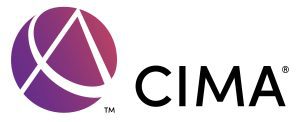
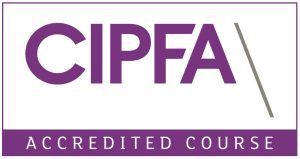
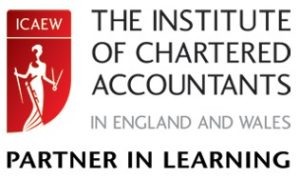
Course features
-
International students can apply
-
Professional accreditation
-
Sandwich year option available
-
Studying abroad option available
-
Work placement opportunity
What you'll study
We’ll go through the essentials to set the scene for the rest of your time at Edge Hill. Study financial statement preparation, management information and the theories behind them. You’ll also analyse economics for accountants, mathematics and statistics to see the wider context of finances. Finally, you’ll apply IT skills to financial management situations and develop your skills as an accountant.
You’ll advance your accountancy skills in Year 2, including learning about law for accountants. Delve into financial reporting and management accounting and look at more complex uses for Sage. Develop research skills and shape your second year by choosing a work placement or graduate enterprise. During the latter you’ll create and launch your own product or service.
We’ll challenge you with complex accounting and financial management techniques. Develop your skills with modules in advanced management accounting, financial management, taxation, and auditing and assurance. Then undertake an independent academic piece of research by completing a dissertation in accounting and financial management.
Where your course includes optional modules, these are to provide an element of choice within the course curriculum. The availability of optional modules may vary from year to year and will be subject to minimum student numbers being achieved. This means that the availability of specific optional modules cannot be guaranteed. Optional module selection may also be affected by timetabling requirements. Some restrictions on optional module choice or combinations of optional modules may apply.
How you'll study
On our accountancy degree, you will study through lectures, workshops and tutorials, group exercises and on the job learning while on your work placement. You will also have the opportunity to learn from external business professionals who are invited to teach occasional sessions.
The work placement involves a period working in an external company which allows you to put your learning into practice. As well as developing your skills and future learning processes, you will have the opportunity to build relationships with potential employers and gain vital experience for your CV.
How you'll be assessed
We will assess your vocational capability, academic critical thinking and intellectual development throughout the course. Coursework, case studies, problem-solving exercises and exams could be used and you may be assessed individually or in a group.
Who will be teaching you
Edge Hill Business School is home to a thriving research community, hosts a growing international partnership portfolio and is a member of AACSB International (The Association to Advance Collegiate Schools of Business), the world’s largest management education network.
You will be taught by highly qualified, experienced and enthusiastic academics, including professionally qualified accountants, who research and regularly engage within the wider business and academic environment. Staff are encouraged to specialise in particular subjects so you will benefit from a wide range of knowledge and experience.
Entry criteria
Entry requirements
Typical offer 112-120 UCAS Tariff points, for which no specific subjects are required, plus GCSE Mathematics at Grade C or Grade 4 or above, or equivalent.
Please note, for the purposes of accountancy, a Level 2 numeracy qualification is not considered as equivalent to GCSE Grade C or Grade 4 in Mathematics.
Example offers
| Qualification | Requirement |
|---|---|
| A Level | BBC-BBB. |
| BTEC Extended Diploma (or combination of BTEC QCF qualifications) | Distinction, Merit, Merit (DMM). |
| T Level | Overall grade of Merit. |
| International Baccalaureate (IB) | We are happy to accept IB qualifications which achieve the required number of UCAS Tariff points. |
| Access to Higher Education Diploma | 45 credits at Level 3, for example 15 credits at Distinction and 30 credits at Merit or 24 credits at Distinction and 21 credits at Merit. The required total can be attained from various credit combinations. |
Please note, the above examples may differ from actual offers made. A combination of A Level and BTEC awards may also be accepted.
If you have a minimum of two A Levels (or equivalent), there is no maximum number of qualifications that we will accept UCAS points from. This includes additional qualifications such as Extended Project Qualification (EPQ), AS Levels that haven't been continued to A Level, and General Studies AS or A Level awards.
English language requirements
International students require IELTS 6.0, with a score no lower than 5.5 in each individual component, or an equivalent English language qualification.
If your current level of English is half a band, one band, or one-and-a-half bands lower, either overall or in one or two elements, you may want to consider our Pre-Sessional English course.
How to apply
Apply full-time
Read our guide to applying through UCAS to find out more about the application process.
International
Please see our international student pages for further information about how to apply as a prospective international student.
Should you accept an offer of a place to study with us and formally enrol as a student, you will be subject to the provisions of the regulations, rules, codes, conditions and policies which apply to our students. These are available at www.edgehill.ac.uk/studentterms.
If you join a full time undergraduate degree at Edge Hill University, we will guarantee you the offer of a room in our halls of residence for the first year of your course.
Discover our accommodation
Facilities
 A stunning £8million building provides impressive teaching and learning facilities for students in Edge Hill Business School.
A stunning £8million building provides impressive teaching and learning facilities for students in Edge Hill Business School.
The contemporary three-storey building offers a 100-seat lecture theatre and modern seminar and meeting rooms. There are also social learning areas which encourage a more informal and interactive style of learning, in addition to an attractive roof garden and atrium.
Where you'll study
Business School
Finance
Tuition fees
UK Full-Time
£9,250
a year
International
£16,500
a year
EU/EEA and Swiss students who have settled or pre-settled status under the EU Settlement Scheme, as well as Irish nationals, may be eligible for the UK tuition fee rate.
Financial support
Subject to eligibility, UK students joining this course can apply for a Tuition Fee Loan from the Government to cover the full cost of tuition fees. UK students enrolling on the course may also be eligible to apply for additional funding to help with living costs.
Please view the relevant Money Matters guide for comprehensive information about the financial support available to eligible UK students.
EU/EEA and Swiss students who have settled or pre-settled status under the EU Settlement Scheme may be eligible to apply for financial support. Irish nationals can ordinarily apply to Student Universal Support Ireland (SUSI). If you are an EU student who does not have settled or pre-settled status, or are an international student from a non-EU country, please see our international student finance pages.
Your future career
Our accountancy degree provides insight into business, focusing on the financial implications and aspects. Because of this, some graduates choose to embrace their entrepreneurial spirit and start their own business.
There’s also the potential to follow a range of career paths in finance-related roles within commerce, accounting practice or public sector business. Previous graduates have found their place in organisations such as Deloitte, Ernst and Young, PwC and KPMG.
Edge Hill graduates have used their expertise in the following areas:
- Financial statement external auditor
- Internal auditor
- Taxation specialist
- Insolvency practitioner
- Business/management consultancy
- Forensic accountants
- Transaction services (business mergers and acquisitions)
- Cyber security
- Financial accountants
- Management accountants
- Treasury department
- Tax accountants
- HMRC tax specialist
This accountancy degree is closely aligned with the requirements of the main accountancy bodies in England and Wales as follows:
- The Association of Chartered Certified Accountants – nine ACCA papers;
- The Chartered Institute of Management Accountants – four Chartered Global Management Accountant (CGMA) papers, three exemptions from operational level;
- Institute of Chartered Accountants in England and Wales – seven ICAEW papers;
- The Association of International Accountants – ten AIA papers;
- The Chartered Institute of Public Finance and Accountancy – seven CIPFA papers;
- Certified Public Accountants Association UK – Associate CPAA membership;
- The Association of Accounting Technicians – full AAT membership.
The programme allows successful students to apply for exemptions from the professional examinations of these bodies to gain accountant status as quickly as possible.
Course changes
Every effort has been made to ensure the accuracy of this information, however our courses are subject to ongoing review and development. Changing circumstances may necessitate alteration to, or the cancellation of, courses.
Changes may be necessary to comply with the requirements of professional bodies, revisions to subject benchmarks statements, to keep courses updated and contemporary, or as a result of student feedback. We reserve the right to make variations if we consider such action to be necessary or in the best interests of students.



